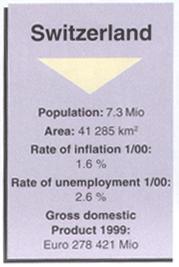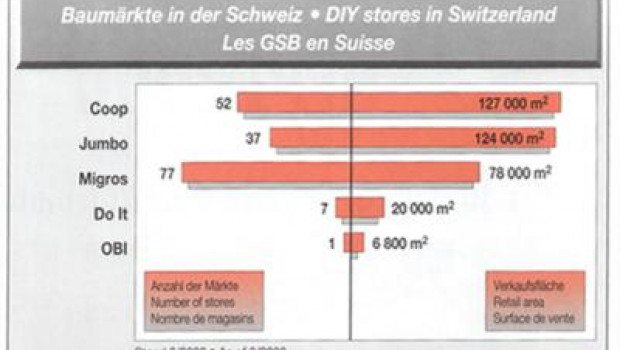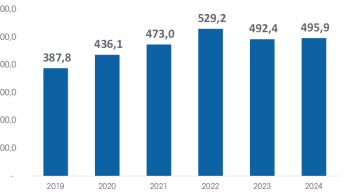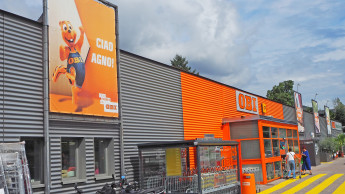Up to now four DIY multiples have been operating in Switzerland. All of them Swiss. However, the indigenous groups are no longer among themselves: last year Migros opened its first OBI store
Bauhaus initiated construction work at Belp in the canton of Bern last August. This is an administrative building, though it is still not clear whether it will eventually be the new administrative headquarters of the company in Switzerland. At any rate Heinz Baus, proprietor of the Interbauhaus group, has his adopted place of residence in Thun, also in the canton of Bern. The first Bauhaus outlet in Switzerland can be expected in the year 2001.
Hornbach is yet another German chain that is drawn to the DIY market of this alpine republic. Medium-term planning schedules between eight and ten locations for Switzerland. Four DIY superstores are to be initiated by the end of 2001. The first new opening is planned for Etoy and the second Swiss Hornbach is to be established in the Luzern suburb of Littau. The opening of this DIY superstore should take place at the end of 2000.
For the most part the Swiss DIY multiples can look forward to this influx of foreign DIY business concerns with composure. For the big names in the Swiss branch have already covered the market very adequately.
Coop still remains number one in Switzerland. The group had 52 stores at the end of March 2000 and a combined retail area of 127 000 m2. Meanwhile two more Coop DIY stores will have started up by the end of April. At the end of March the Jumbo DIY stores were only just behind Coop in terms of combined retail area.
This year the signs point to growth in Swiss retailing, which means for the DIY sector as well. Despite slightly rising prices (whereas the rate of inflation was 0.1 per cent in January 1999, it rose to 1.6 per cent in February 2000), consumers are proving to be happy to spend their money. The expectation is for increasing domestic demand, with the favourable progress of the labour market above all providing confidence in the process. Since the beginning of 1999 alone the unemployment rate has dropped by almost one percentage point to 2.6 per cent in January 2000. The rate of price increases should remain clearly below the two per cent mark this year.



 Menü
Menü














